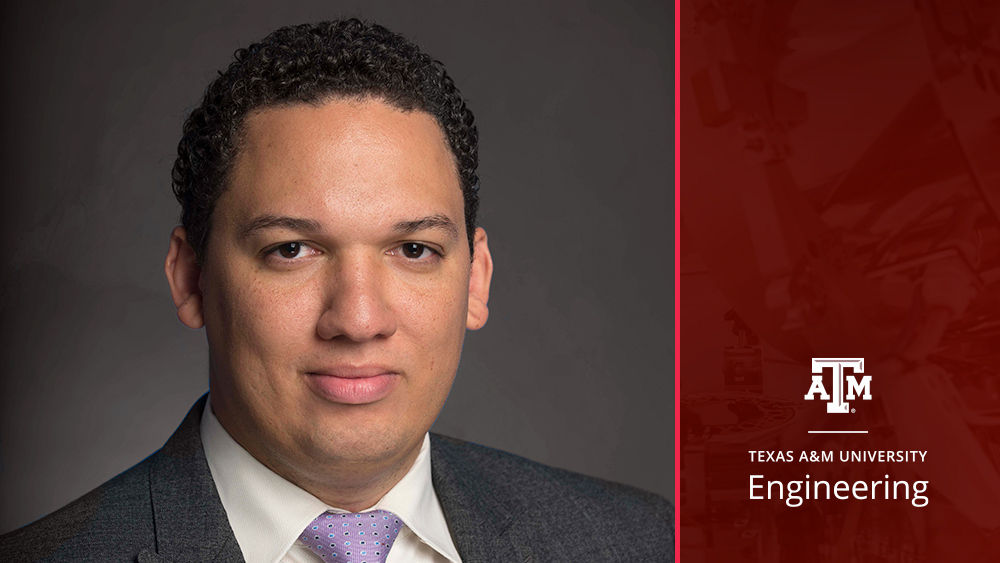
Using the principles of solid mechanics to develop safer, cheaper, better performing, more durable and more resilient materials and structures are critical for advancing countless technologies — from hypersonic aircraft to nuclear fusion reactors.
However, creating these technologies requires enhanced modeling frameworks capable of predicting potential material failures efficiently and accurately, which has challenged engineers for decades.
Dr. Justin Wilkerson, associate professor in the J. Mike Walker ’66 Department of Mechanical Engineering at Texas A&M University, recently received a National Science Foundation Faculty Early Career Development Program (CAREER) Award, which will support research, education and outreach on predicting the deformation, failure and fracture of novel materials.
“Predicting plastic deformation and failure is vital to designing and safely operating countless technologies in the energy, transportation, defense and space sectors,” said Wilkerson. “Plasticity and failure are simultaneously affected by atomic-scale defects and structure-scale geometry. This ‘tyranny of scales’ is a long-standing problem in mechanics.”
According to Wilkerson, most multi-scale modeling strategies rely on multiple layers of “coarse-graining” — a method for smoothing out fine-scale fluctuations in complex systems.
In contrast, this research project seeks to develop and demonstrate an all-scale continuum modeling framework. The novelty of this type of framework lies in its efficient and comprehensive extension of continuum modeling down to retaining fine-scale fluctuations that arise at the atomistic and microscopic scales. Moreover, this method will represent and predict the full tensorial response of structural materials under various loading paths.

As part of the project, the model will be calibrated and validated against an extensive suite of atomistic calculations and experiments. These datasets will span a wide swath of microstructures, from dislocation-starved to dislocation-rich regimes, as well as a wide range of stress states and strain rates. The material systems that will be studied include magnesium-aluminum micropillars, nanoporous gold and coated cellular nanocomposites.
“This research contributes to the field of mechanics through a greater understanding of the deformation and failure processes of these three classes of materials and nano-structures across a broad range of loading conditions,” said Wilkerson.
In addition to scientific research, education and outreach are significant aspects of the project and have the potential to make a substantial impact on Texas A&M students. To enhance the educational experience of mechanical engineering undergraduate and graduate students, Wilkerson will develop interactive tools that aid students in gaining a deeper understanding and intuition of core concepts. The selected concepts will include structural-scale deformation and failure, atomic-scale deformation and failure, structural optimization and materials-by-design.
He will also develop a smartphone game that uses billiards to teach various audiences about deformation and bond breaking in molecules and nano-structures subjected to high-speed impact.
Lastly, he will lead in-person outreach activities targeting middle school students, called Science, Technology, Engineering and Mathematics (STEM) Family and Friends Nights.
“This award integrates research with education to develop a game-based learning platform,” said Wilkerson. “Additionally, the start of these annual events will provide learning experiences and build a network of supporters, advocates and champions that strengthen the pipeline of STEM participation.”
The outreach activities are part of an ongoing partnership with Natasha Wilkerson, Vivify STEM's co-founder and Cosmic Leap Foundation's president.